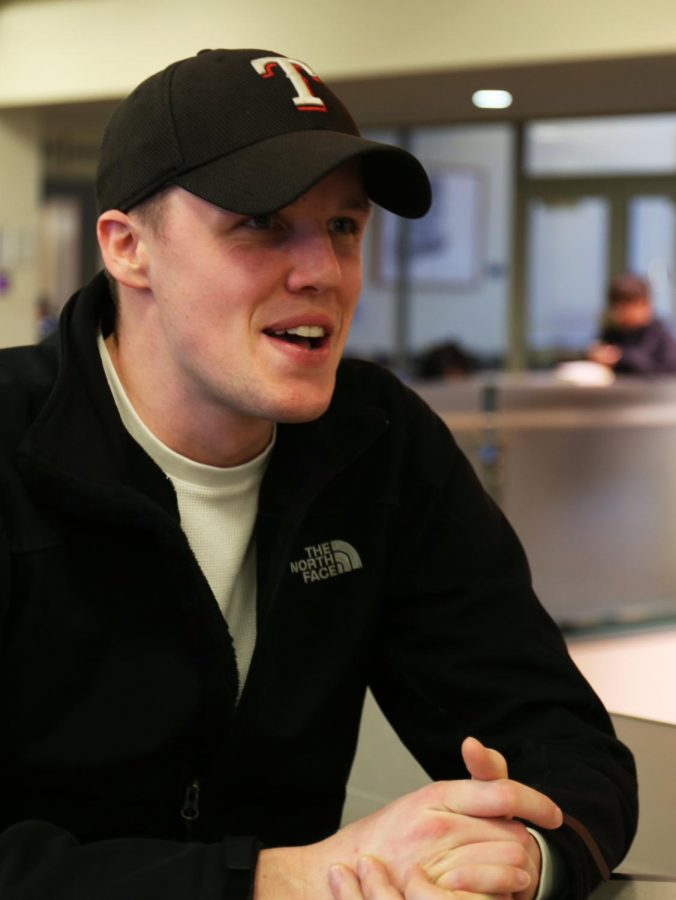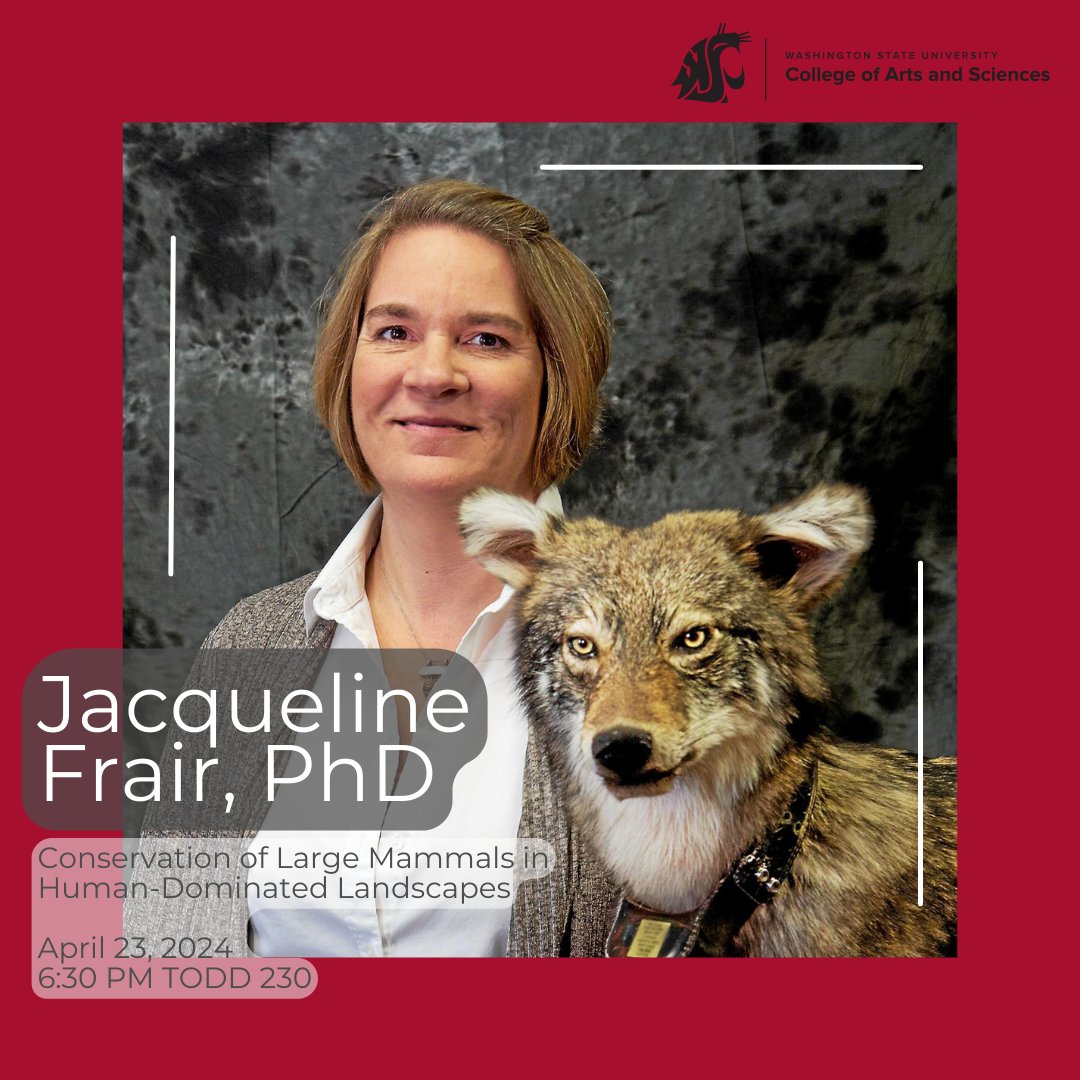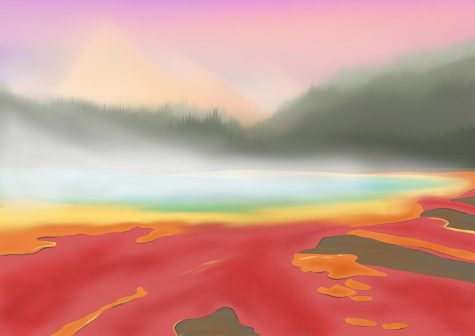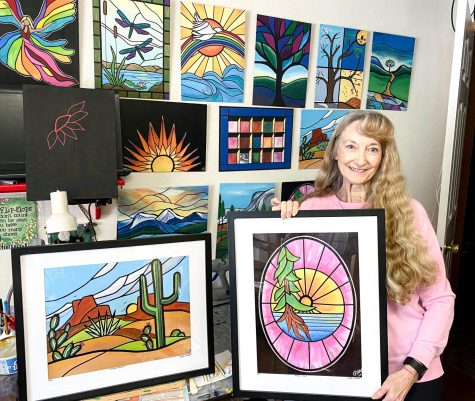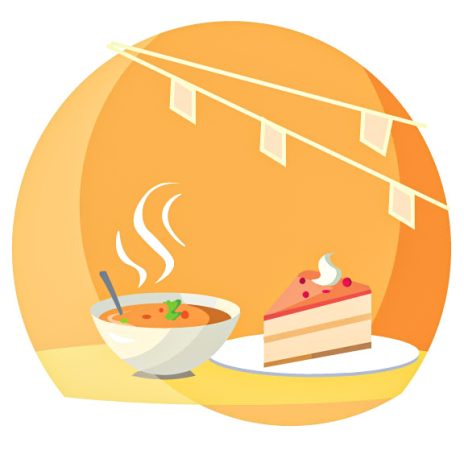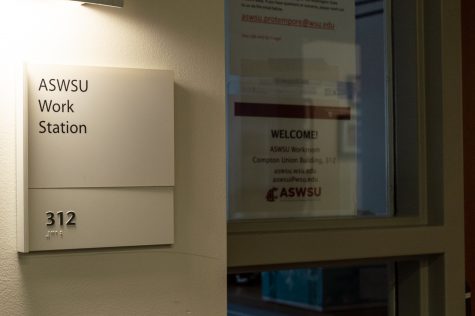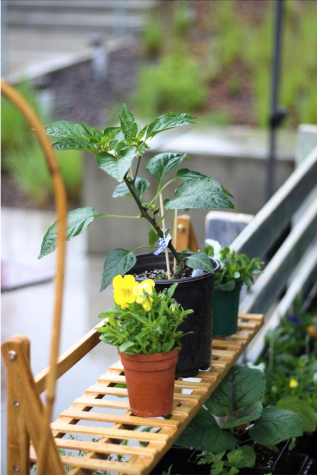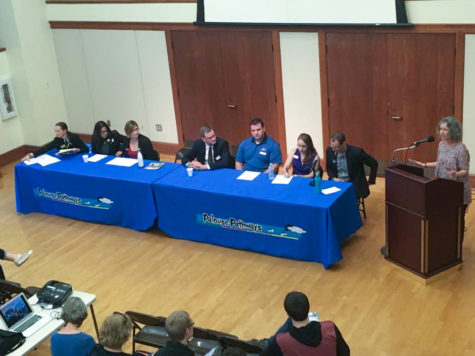WSU plays role in growing wine industry
Viticulture, enology program growth shows state may become popular grape-growing territory.
ABBY LINNENKOHL | The Daily Evergreen
While reminiscing about the difficulty of taking over the club without much preparation, Viticulture and Enology Club President Zachary Green speaks about the Washington Winegrowers Association.
February 5, 2018
According to the Washington State Wine Commission, there were only 19 wineries in 1981. Today over 900 exist across the state. Washington is the second largest premium wine producer in the U.S., with California being the first.
Latah Creek Wine Cellars of Spokane, which opened in 1982, is the 35th winery in the state.
“By the time we had our 10th anniversary, there was over 100 wineries,” owner Mike Conway said. “Ten years ago there was a boom and now there are over 900 wineries. The industry has just gone ballistic.”
Conway said the community was close-knit when he first opened Latah Creek Wine Cellars.
“When I first started we all knew each other by first names, we were all friends and helped each other out,” Conway said. “Now we don’t know but a handful, just because there’s so many. Everybody’s all doing their own thing and it’s a completely different atmosphere. It’s very competitive now.”
Vicky Scharlau, executive director of the Washington Winegrowers Association, emphasized the association’s commitment to the wine community.
“The Washington Winegrowers Association represents growers and vintners in the state and their focus is on industry, education and advocacy on both the state and federal level,” she said.
Every year, the association holds an annual Convention and Trade Show.
During the convention, they hold educational sessions meant to target the needs and educational interests of all aspects of the industry, Scharlau said. They host a keynote speaker and a leadership luncheon, and the whole industry meets to learn about new research, laws and regulations.
“It really is the one event where the whole industry gets together,” Scharlau said. “The convention has grown significantly in the past 10 – 20 years.”
This year’s convention is Feb. 6 – 8 at the Three Rivers Convention Center in Kennewick.
WSU offers a duel-campus program at the Pullman and Tri-Cities campuses for students interested in viticulture and enology, Kaury Balcom, the program’s communications and public relations coordinator, said. Undergraduate, graduate, doctorate and certificate programs are available.
There are 120 undergraduate students currently enrolled, split evenly between both campuses. Balcom said that, while they’re in the exact same program, the students in Tri-Cities have access to the wine industry a little more readily than the students in Pullman.
“[WSU] is here to support the needs of the Washington state wine industry, and we do that through research,” Balcom said. “We are trying to train qualified people to work in the vineyards and wineries that are thriving in the state of Washington.”
Students involved or interested in the viticulture and enology program at WSU also have the opportunity to join the V&E Club in Pullman.
“It’s a small club that focuses on informing the students within our program of opportunities around the area that has to do with grape growing and winemaking,” club President Zachary Green said.
Green said discussions center on the growing wine industry in Washington. The club stays informed on Washington Winegrowers Association meetings and events students may not make it to because of classes.
“We try to get involved, and we work with Merry Cellars, a local winery,” Green said. “The owner is so helpful, and he’s donated so much to WSU and the V&E Club. He helps train us, make our own wine and offers internships and is overall such a big help.”
Green said most V&E Club members are in the viticulture and enology major, but there are a few whose majors are closely related, like fruit management. Some are in a completely separate major, but are interested in learning about both the club and wine.
The Viticulture and Enology Club meets at 5:30 p.m. every Monday in Johnson Hall, Room 151.


